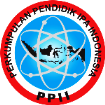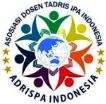Inquiry Learning Using Flipped Classroom Approach to Improve Students Self Efficacy in Dynamic Fluid Material
Abstract
This study aims to obtain an overview of increasing students' self-efficacy after applying inquiry learning with the flipped classroom approach on dynamic fluid material. The research method used in this research is the mix method. Data analysis techniques are presented in a quantitative descriptive form. The research subjects were students of class XI in one of the public high schools in Kampar Regency, Riau Province with a sampling technique based on certain considerations (purposive sampling). The sample in this study was one class of XI IPA students, totaling 25 students with an average age of 17 years. The research data was obtained through a self-efficacy questionnaire with 28 statements according to the self-efficacy component. The findings of the maximum, minimum and average values of the level of student self-confidence which then after being matched with the table of self-efficacy criteria shows the average level of student self-confidence from moderate (59.4%) to high (68.88%) with the highest average on the generality component. The results showed that inquiry learning with a flipped classroom approach on dynamic fluid materials could increase students' self-efficacy after learning activities with a major effect (d = 1.92) and received positive responses from students in the excelent category.
Keywords: inquiry, flipped classroom, self efficacy
Full Text:
PDFReferences
Ahmed, H. D., & Asiksoy, G. (2021). The effects of Gamified Flipped Learning Method on Student’s Innovation Skills, Self-efficacy Towards Virtual Physics Lab Course and Perceptions. Sustainability (Switzerland), 13(18), 1–18. https://doi.org/10.3390/su131810163
Amin, A., & Sulistiyono, S. (2021). Pengembangan Handout Fisika Berbasis Contextual Teaching and Learning (CTL) untuk Meningkatkan Aktivitas dan Hasil Belajar Fisika Siswa SMA. Jurnal Pendidikan Fisika Undiksha, 11(1). https://doi.org/10.23887/jjpf.v11i1.33436
Annam, S., Susilawati, S., & Ayub, S. (2020). Pengaruh Model Pembelajaran POE (Predict-Observe-Explain) Terhadap Kemampuan Pemecahan Masalah Fisika SMA Ditinjau dari Sikap Ilmiah Peserta Didik. Jurnal Ilmiah Profesi Pendidikan, 5(1), 35–42. https://doi.org/10.29303/jipp.v5i1.104
Arslan, N. (2017). Investigating the Relationship between Educational Stress and Emotional Self-Efficacy. Universal Journal of Educational Research, 5(10), 1736–1740. https://doi.org/10.13189/ujer.2017.051010
Azizah, R., Yuliati, L., & Latifah, E. (2015). Kesulitan Pemecahan Masalah Fisika pada Siswa SMA. Jurnal Penelitian Fisika dan Aplikasinya (JPFA), 5(2), 44-50.
Çakiroğlu, Ü., Güven, O., & Saylan, E. (2020). Flipping The Experimentation Process: Influences on Science Process Skills. Educational Technology Research and Development, 68(6), 3425–3448. https://doi.org/10.1007/s11423-020-09830-0
Chang, R. C., Kivela, J., & Mak, A. H. (2011). Attributes that Influence the Evaluation of Travel Dining Experience: When East Meets West. Tourism Management, 32(2), 307-316.
Cohen, J. (1969). Statistical Power Analysis for the Behavioral Sciences. Academic Press.
Creswell, J. W. (2014). Research Design Pendekatan Kualitatif, Kuantitatif, dan Mixed. Pustaka Pelajar.
Farrand, K. (2016). Self-Efficacy of Students with Visual Impairments Before and After Participation in an Inquiry-Based Camp. Journal of Science Education for Students with Disabilities, 19(1), 50–60. https://doi.org/10.14448/jsesd.09.0004
Hamid, A., & Effendi, H. (2019). Flipped Classroom sebagai Alternatif Pembelajaran pada Mata Pelajaran Dasar Listrik dan Elektronika. Jurnal Teknik Elektro Dan Vokasional, V(1), 81–86.
Handayani, M. U., Harahap, M. B., & Rajagukguk, J. (2018). The Effect of Scientific Inquiry Learning Model for Student’s Science Process Skill and Self Efficacy in The Static Fluid Subject. 200, 446–449. https://doi.org/10.2991/aisteel-18.2018.96
Hanifah, N., & Agustini, R. (2012). Peningkatan Self Efficacy dan Berpikir Kritis Melalui Penerapan Model Pembelajaran Inkuiri Materi Pokok Asam Basa Kelas XI SMAN 9 Surabaya. UNESA Journal of Chemical Education, 1(1), 27–33.
Lestari, D. I., Effendi-Hasibuan, M. H., & Muhammad, D. (2020). The Effect of The Flipped Classroom Approach and Self-Efficacy on a Guided Inquiry on Students' Creative Thinking Skills. Jurnal Pendidikan Kimia, 12(2), 95-105. https://doi.org/10.24114/jpkim.v12i2.19435
Kemendikbud. (2014). Konsep dan Implementasi Kurikulum 2013. Kementerian Pendidikan dan Kebudayaan.
Loizou, M., & Lee, K. (2020). A Flipped Classroom Model for Inquiry-Based Learning in Primary Education Context. Research in Learning Technology, 28(1063519), 1–18. https://doi.org/10.25304/rlt.v28.2287
Marina, H., & Ridlo, S. (2021). The Effectiveness Of Flipped Classroom to Improve Students’ Concept Understanding and Self Efficacy During The Covid-19 Pandemic. Journal of Biology Education, 10(1), 70–76.
Marlowe, C. A. (2012). The Effect Of The Flipped Classroom on Student Achievement and Stress. (Unpublished master’s thesis). Montana State University.
Hidayati, N., Leny, L., & Iriani, R. (2018). The Effect of Inquiry Based Learning Model and Flipped Classroom Approach In Self-Efficacy and Equilibrium Ion in A Salt Solution Material Learning Outcomes. In Prosiding Seminar Nasional Pendidikan Kimia (pp. 99-107).
Namaziandost, E., & Çakmak, F. (2020). An account of EFL learners’ Self-efficacy and Gender in The Flipped Classroom Model. Education and Information Technologies, 25(5), 4041-4055..
Olakanmi, E. E. (2017). The Effects of a Flipped Classroom Model of Instruction on Students’ Performance and Attitudes Towards Chemistry. Journal of Science Education and Technology, 26(1), 127–137.
Paristiowati, M., Fitriani, E., & Aldi, N. H. (2017). The Effect of Inquiry-Flipped Classroom Model Toward Students’ Achievement on Chemical Reaction Rate. AIP Conference Proceedings, 1868(August). https://doi.org/10.1063/1.4995105
Marlisa, P. (2020). Penerapan Pembelajaran Flipped Classroom Berbasis Inquiry untuk Meningkatkan Self Confidence dan Hasil Belajar Peserta Didik pada Materi Sel di SMA Negeri Meulaboh. Tesis.
Rafiqah, R., & Dani, A. U. (2021). Pengembangan Model Pembelajaran Flipped Learning Berbasis Inkuiri Dalam Mata Kuliah Fisika Dasar. JPF (Jurnal Pendidikan Fisika) Universitas Islam Negeri Alauddin Makassar, 9(1), 43-68.
Ramayanti, S., Utari, S., & Saepuzaman, D. (2017). Training Students’ Science Process Skills Through Didactic Design on Work and Energy. Journal of Physics: Conference Series, 895(1). https://doi.org/10.1088/1742-6596/895/1/012110
Roshandel, J., Ghonsooly, B., & Ghanizadeh, A. (2018). L2 Motivational self-system and self-efficacy: A quantitative survey-based study. International Journal of Instruction, 11(1), 329–344. https://doi.org/10.12973/iji.2018.11123a
Susilawati, Doyan, A., Harjono, A., & Kosim. (2019). Penerapan Model Pembelajaran Inkuiri Berbasis Media Virtual Program Java. Jurnal Pengabdian Masyarakat Sains Indonesia, 1(1), 4–10.
Yanah, P. A., Nyeneng, I. D. P., & Suana, W. (2018). Efektivitas Model Flipped Classroom pada Pembelajaran Fisika Ditinjau dari Self Efficacy dan Penguasaan Konsep Siswa. JIPFRI (Jurnal Inovasi Pendidikan Fisika Dan Riset Ilmiah), 2(2), 65–74. https://doi.org/10.30599/jipfri.v2i2.302
Zuya, H. E., Kwalat, S. K., & Attah, B. G. (2016). Pre-Service Teachers’ Mathematics Self-Efficacy and Mathematics Teaching Self-Efficacy. Journal of Education and Practice, 7(14), 93–98.
DOI: http://dx.doi.org/10.24014/jnsi.v5i2.16715
Refbacks
- There are currently no refbacks.

Journal of Natural Science and Integration
E-ISSN: 2620-5092 P-ISSN: 2620-4967
Published By:
Department of Science Education, Faculty of Education and Teacher Training,
State Islamic University of Sultan Syarif Kasim Riau, Indonesia
Mailing Address:
Jl. H.R Soebrantas Km. 15 No. 155
Kelurahan Simpang Baru
Kecamatan Tuah Madani, Pekanbaru, Riau, Indonesia
Email: jnsi.tadrisipa@uin-suska.ac.id
Indexed By:
Journal of Natural Science and Integration is licensed under a Creative Commons Attribution 4.0 International License.


_-_Copyy2.png)






.jpg)
.png)
.jpg)
.jpg)




